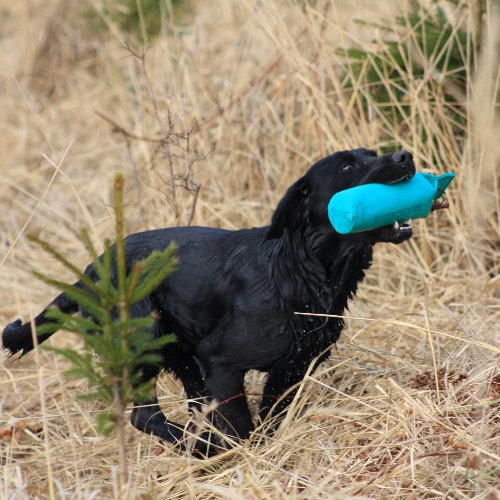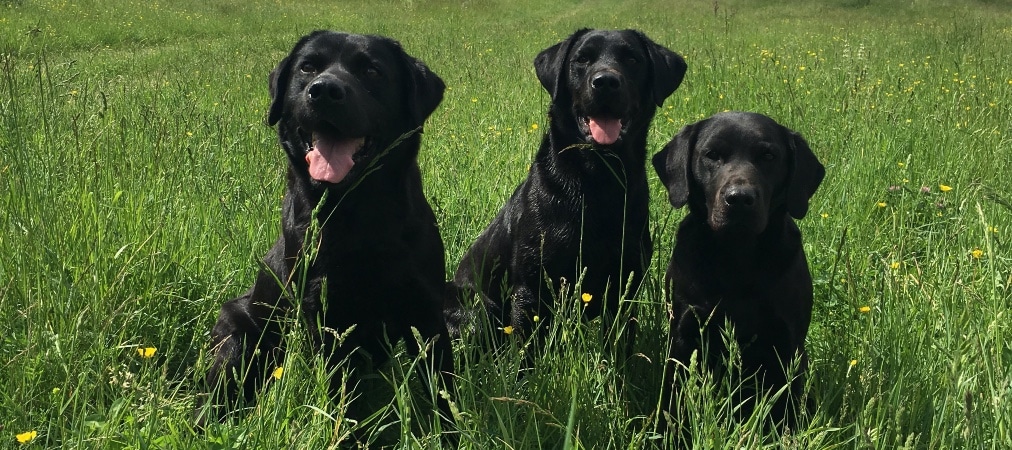
spiritlane gundogs
lifestyle
retrieversport as a lifestyle?
Doesn’t it seem strange? Just think about your own life, what energizes you. It could be a leisure activity, a hobby. With dogs, there is a tremendous opportunity to work with their own instincts, which is what they enjoy the most. That’s why it’s a great opportunity for us to do things together, and build a great relationship with them. Nothing fits this purpose as well as Retrieversport.
When you get your puppy, your first thought is probably how great it would be to teach them at least the basics. It would be wonderful if they were trainable, obedient, didn’t destroy your belongings in the house or garden, were socialized, or someone with whom you could safely organize activities and go for walks.
These days, there are many options available, with numerous dog schools or private trainers offering services tailored to these needs. It’s perfectly fine, and I also highly recommend that you find a school, for example, where you can take your dog to a puppy group. Amongst many similar puppies, they can learn about dog behavior and socialize. But what comes next? Maybe attending a basic training course at a dog school, clicker training, and then we find ourselves in a situation where, apart from going on walks, there isn’t much shared activity together.
the retrievers…
…and instincts
Retrievers are primarily hunting dogs, even though we have heard and read about numerous activities they are involved in, which may lead many to think otherwise.
Of course, many people know them as family pets, helpers, therapy dogs, guide dogs for the blind, or drug detection dogs. They have a lot of potential and they can do all these activities at a high level, but the basic instinct is hunting, including working after shooting, retrieving, as their name suggests.
But what do they retrieve?… In hunting, they retrieve small game, and in training and tests, they retrieve dummies. The latter has become very popular and evolved into a sport, as it doesn’t require actual hunting. Anyone can engage in it in their own environment, making it a great lifestyle for both the dog and the owner.
Obviously, few people can afford to train a dog for hunting and indulge in their hobby, whether from a hunting or dog enthusiast perspective. However, why not engage our dogs in their own instinctual world?
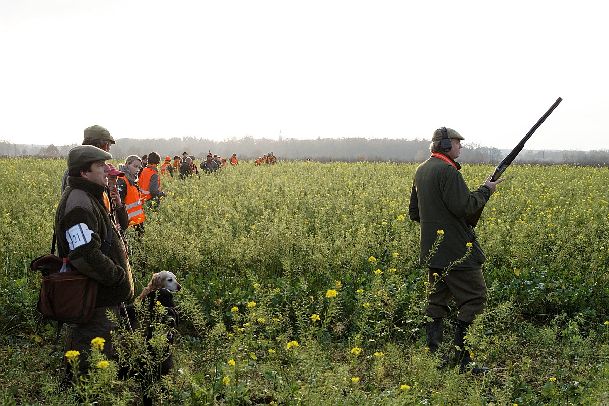
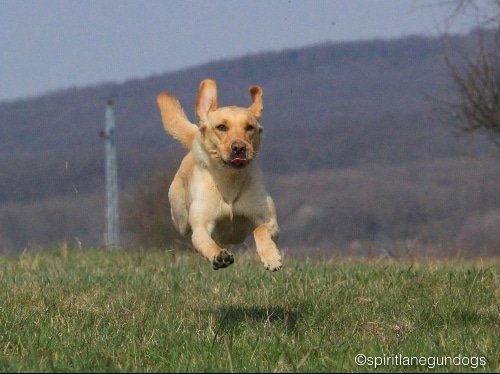
The basic scenario is familiar to everyone… when you throw a ball with a string and your dog brings it back. It’s a fundamental trait of retrievers.
The question is, what effect does it actually have when you simply entertain yourself and your dog with throwing and fetching?
In my opinion, you mainly tire the dog out physically. But what if you also engage them mentally? As an example, I often mention that if you take your dog for a walk, let them run around in the forest or field for 2 hours, and then take them home, they might be ready for another adventure in just 20 minutes. However, if you use their brain a little, for example, by training with them, you can be sure that they will spend half the day resting, although there are always exceptions.
Those who attend retriever-specific training all report that their dogs are mentally exhausted and physically tired, despite moving much less than during a regular walk. The reason is very simple… for example, in a group training session with 5-6 dogs, even waiting for their turn is exhausting as they have to wait for the other dogs to work. This kind of control is also a very big mental task for them.
development
possibilities
So let’s take a look at what our goals and possibilities can be if we set our minds on retriever sports.
This is the sport that may be the most difficult to start, to fully understand what it’s about, what tasks we perform, and of course, why. It’s not hard to say, but you definitely need assistance in the form of a trainer or instructor. Back when this sport started in Hungary, we didn’t have the same opportunities as we do today. We traveled abroad for seminars or organized events here at home. I can say that it was not easy to get in-depth knowledge, but we trained a lot together and pushed each other forward. It has completely changed now, and there are many trainers offering retriever-specific training. In the past, it was almost limited to the central region of the country, but now you can find help almost everywhere in the country, including areas such as Érd, Vácrátót, Gödöllő, Veresegyház near Budapest. In the west, there’s Szalafő in Őrség, Jásd, Mór, Szombathely, and in the east, Debrecen. Of course, many people prefer personalized training, so they travel to me from the other side of the country or even from neighboring countries on a weekly basis for the sessions. Having so many options is a very comfortable situation and allows for significant development, with many people being able to participate. However, everyone starts the sport with different goals in mind. Let’s look at a few of them:
- Breeding goals (preparation for ability or working exams)
- Competitions (Working Test, Field Trial)
- Hunting (VAV exam)
- A recreational activity, a lifestyle where the dog works in its own instinctual world, becoming mentally tired.
Based on my experience, most people start training for the first three goals. Perhaps many think that this sport is a privilege reserved for competitors or hunters. I can confidently say that it’s not the case, anyone can start training, and you will find the exact activity that your retriever requires. Many dog schools offer various lifestyle programs, but they are not really retriever specific. Obviously, guarding and protection tasks are not the most suitable for retrievers, but they will feel much more comfortable in the field. That’s why I recommend looking for activities of this nature and finding a suitable trainer. You will see that with a little help, after a while, you can tire out your dog yourself, but you will also discover more in it. It will be a shared adventure, a new hobby, a chance to meet new people, and you can engage in the activity as a community. Not to mention the amount of time you will spend outdoors, having a shared goal that motivates you to go out. You never know who will become a competitor in the future, believe me, this hobby can easily take you in that direction without you even realizing it. You will also find that you’ve embraced a new lifestyle. 🙂
everyday life
the trainings
It may seem unusual for almost everyone who attends such activities for the first time that we don’t hype up or feed the dog, but rather try to create a calm balance. Here, the dog calmly waits, learns patience, and when it works, it does so with great enthusiasm. Everyone, both the owner and the dog, needs to learn this, and of course, you will receive assistance with specific tasks. But first and foremost, you need to put your own energy into it. Because the dog will absorb everything from you and truly reflect how you are in everyday life. He will sense if you are tense, in a good mood, or nervous. All of this will manifest in the work as well.
It’s somewhat like a continuous personal development journey. As you start working with the dog in this field, you will identify with the problems that may also hinder you in your daily life. You try to handle your dog, but you may encounter the same problems even with your second or third dog. You’ve probably heard the cliché thought that every dog is like its owner… and it’s not a joke! In order for your relationship to grow, you need to transform the energies within yourself, so that you can work together best. It will be an interesting journey, I can assure you 🙂
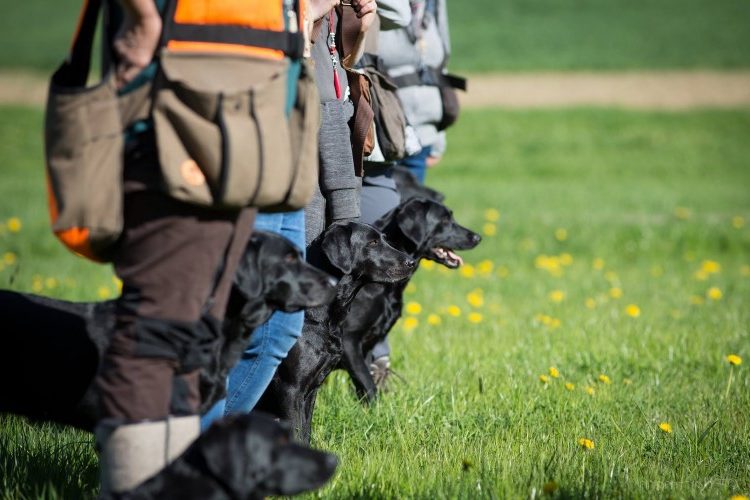
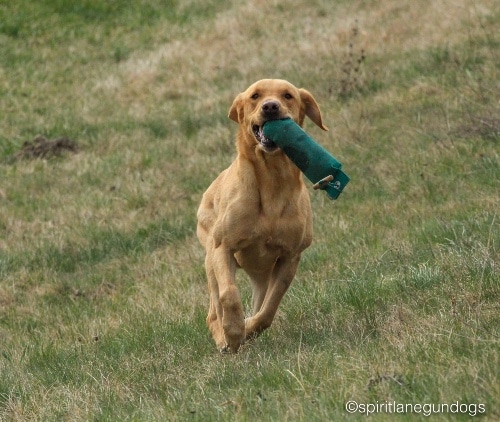
The training sessions do not involve using treats as rewards. The joy of retrieving itself is the reward for the dog. Of course, there may be some dogs for which we use treats during the initial stages, but we don’t want to rely on them because they won’t be necessary. At the beginning, this can be very unusual for many owners, but after a few weeks, you will see that your dog has become crazy about dummies, and you can leave the treats at home without them even noticing.
Retriever training is based on hunting situations where they work after shooting. They have to learn to wait by their owner’s side and stay there even if a bird or a dummy falls in front of them during training or competitions. Not only are they not allowed to chase after it, but they cannot make any noise either (e.g., a whine would result in immediate disqualification in a competition). It requires a high level of mental preparation from the dog, and perhaps this is the most challenging part because they need to achieve a balance that controls their instincts and then activates them on command to perform tasks with great enthusiasm and speed. It is certain that they get tired very quickly during the introduction of training, so it’s important not to overload them because they can easily become unmotivated. The saying “quality is more important than quantity” holds true in this context.
We learn a lot, including retrieving (which is not inherently instinctive), stability, calmness, handling, the dynamics of reward-deny, control, and whistle signals.
We also learn how to use the retriever leash, which is a very effective tool but not easy to use properly. Many people are apprehensive about this tool because it is a choke leash, but believe me, if you use it right, it is exactly what you need to calm your dog with minimal correction.
If you want an exciting and engaging activity that matches the dog’s instincts, give retriever sports a try!
Csaba receives a lot of positive feedback about the trainings, here are a few testimonials:
Dear Csaba,
I am incredibly grateful to have the opportunity to learn about the breed and retriever training under your expert guidance. Even as an experienced dog owner, everything you represent and the way you approach it is completely new to me. The love, respect, and humility you exhibit towards dogs is evident in every move you make. The training methods are very natural, working with the breed’s instincts, and the work itself becomes the reward for the dog. There is still a long journey of learning and patience ahead of me with Audrey, but I know she is in the best hands under your leadership.
Thank you,
I got to know Csaba and retriever training in the autumn of 2020.
Before that, I didn’t even know such a thing existed. I started attending with my black show Labrador, Mása. At first, I was terribly clumsy. I was everything but a pack leader. As the weeks went by, I started feeling better, gaining more self-confidence. Mása tried to “dominate” me, but Csaba taught me how to take control. Our classes restored my self-confidence. Mása is progressing incredibly, getting better and more skillful every day. It always surprises me what she can do. We both really enjoy the classes.
I can only recommend it to everyone. It’s the best sport. It calms and energizes.
I am grateful to fate for introducing me to Csaba!
Before we found him, we had been to several places, but no one could find the “key” to Kanga. Csaba managed it right away, and since then, we have been constantly learning from him! Before, we didn’t even know what a dummy was, let alone that we could work with whistle signals. Thanks to Csaba’s effective assistance, we are improving in these areas as well.
A heartfelt thank you for it!
I met Csaba in 2020, by which time I had already had a Labrador Retriever for five years. We had been to dog school and participated in individual training sessions together. In 2020, two Golden Retrievers joined my family, and I approached Csaba to prepare them for the ability test. Initially, my intention was to go and pass the test, but as time went by, I realized that I was enjoying the training sessions more and more. What is very important to me is that the atmosphere during the training sessions is not “rigid.” We have casual conversations and encounter funny situations as well. Another aspect that I really like is how Csaba approaches the energetic aspect of the human-dog relationship. I appreciate it when he acknowledges that there’s something he can’t interpret in a dog’s behavior and tells me that he doesn’t know at that moment. Then he thinks about it for several days, and so far, he has always come up with a solution. He truly understands the language of dogs, a real retriever whisperer.

